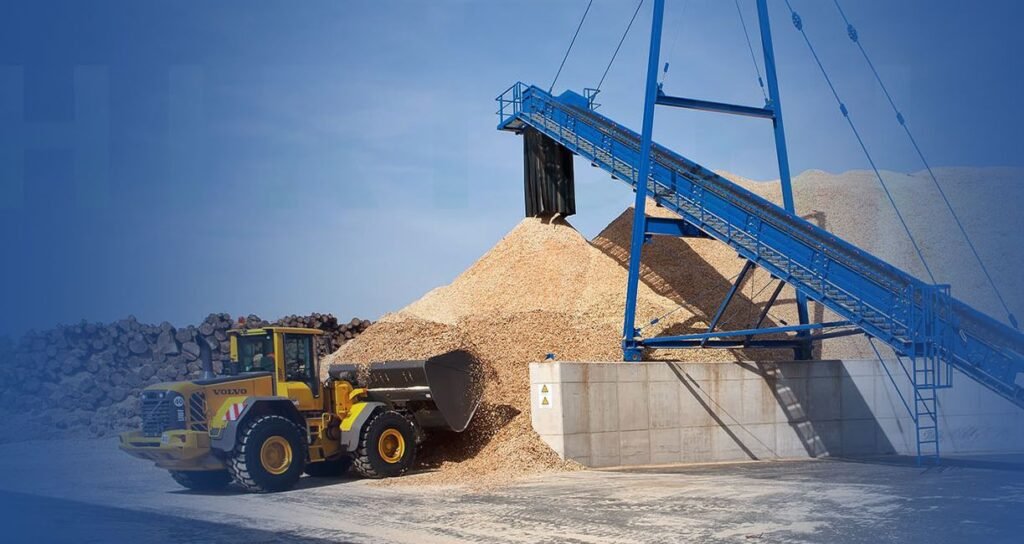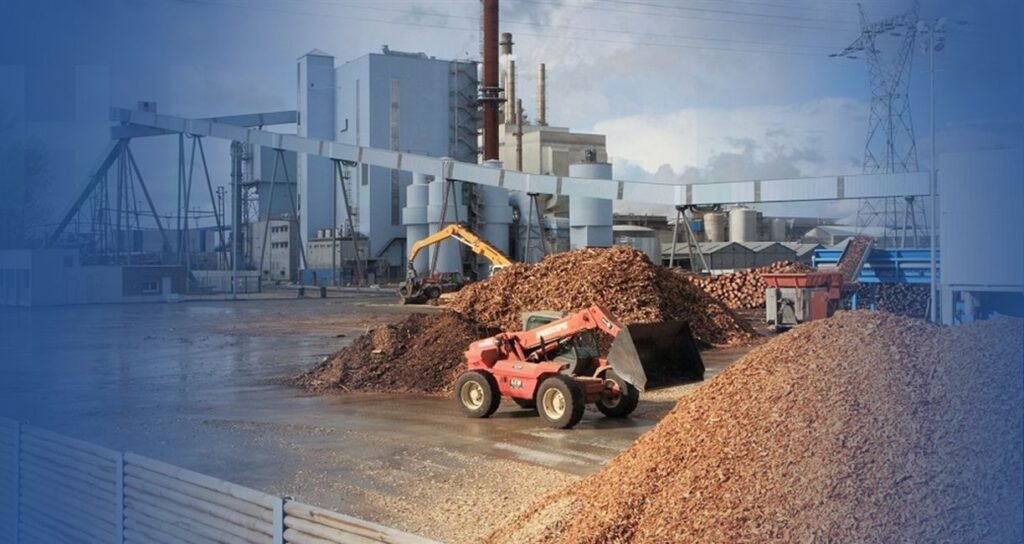Establishing a small wood pellet factory in Moldova presents an exciting opportunity to tap into the country’s forestry resources and meet the growing demand for renewable energy. Below is a detailed guide on the timeline and necessary preparations for setting up such a facility.
Timeline for Building a Small Wood Pellet Factory
The timeline for building a small wood pellet factory in Moldova can vary based on several factors. However, a general timeline might look like this:
- Planning and Feasibility Study: 2-3 months
- Conduct market research and assess the viability of the project.
- Obtaining Permits and Licenses: 3-4 months
- Secure the necessary environmental, construction, and operating permits.
- Securing Funding: 2-3 months
- Obtain investment or loans, and explore government incentives.
- Land Acquisition and Site Preparation: 1-2 months
- Select and prepare the site, ensuring it meets all zoning and environmental requirements.
- Construction of Facility: 4-6 months
- Engage contractors to build the factory, following approved designs.
- Equipment Installation: 1-2 months
- Install and configure the necessary machinery and production lines.
- Testing and Commissioning: 1 month
- Test all equipment and processes to ensure they meet operational standards.
- Staff Recruitment and Training: 1-2 months
- Hire and train staff to operate the factory and manage production.

Total estimated time: 15-23 months
Some phases can overlap, potentially reducing the overall timeline. However, unforeseen challenges, such as delays in permit approvals, could extend the process.
Key Preparations for Establishing a Wood Pellet Factory in Moldova
1. Market Research and Feasibility Study
- Demand Analysis: Assess local and regional demand for wood pellets, considering both residential and industrial markets.
- Competition: Analyze existing competitors and explore potential export markets.
- Raw Material Availability: Evaluate the availability and cost of raw materials, such as forestry residues and agricultural byproducts.
- Financial Viability: Conduct a financial assessment to ensure the project’s profitability. (Related post: Biomass Pellet Production Line)
2. Legal and Regulatory Compliance
- Business Registration: Register the business entity in Moldova.
- Permits and Licenses:
- Obtain environmental permits for emissions and waste management.
- Secure construction permits from local authorities.
- Acquire operating licenses specific to the industry.
- Forestry Regulations: Ensure compliance with Moldovan forestry laws and sustainable harvesting practices.
3. Funding and Financial Planning
- Investment: Secure funding through investors, loans, or government grants.
- Business Plan: Develop a comprehensive business plan with financial projections.
- Government Incentives: Explore potential government incentives or EU funding opportunities.
4. Site Selection and Land Acquisition
- Location: Choose a site with proximity to raw materials and transportation infrastructure.
- Zoning Requirements: Ensure the site meets local zoning regulations for industrial use.
- Environmental Assessments: Conduct required environmental impact assessments.
5. Facility Design and Construction
- Design: Engage architects and engineers to design the facility, optimizing production flow.
- Compliance: Ensure the design meets Moldovan building codes and safety regulations.
- Construction: Hire experienced contractors to build the factory within the allocated timeframe.
6. Equipment Selection and Procurement
- Equipment: Select equipment suitable for a small-scale operation (1-2 tons per hour capacity).
- Key equipment includes wood chippers, grinders, dryers, pellet mills, cooling systems, and packaging machinery.
- Cost Management: Consider both new and refurbished equipment to manage costs effectively.
7. Raw Material Sourcing
- Suppliers: Establish relationships with local forestry companies and sawmills.
- Sustainability: Develop a sustainable supply chain, ensuring consistent raw material availability.
- Diversification: Consider diversifying raw material sources, such as agricultural residues, to ensure supply stability.
8. Workforce Planning and Training
- Recruitment: Hire skilled workers for production and management roles.
- Training: Develop training programs for equipment operation and maintenance.
- Compliance: Ensure adherence to Moldovan labor laws and safety regulations.
9. Quality Control Systems
- Standards: Implement quality control measures to meet international standards (e.g., ENplus certification).
- Testing: Set up a laboratory for testing pellet quality and consistency.
- Procedures: Develop standard operating procedures (SOPs) to maintain consistent production quality.
10. Logistics and Distribution Planning
- Transportation: Establish relationships with logistics companies for raw material and product transportation.
- Storage: Develop a storage and inventory management system for raw materials and finished products.
- Distribution: Plan for domestic distribution and potential export opportunities.
11. Marketing and Sales Strategy
- Branding: Develop a brand identity and marketing materials.
- Customer Identification: Identify target customers, including residential users, industrial clients, and export markets.
- Promotion: Consider participating in trade shows and industry events to promote the product.
12. Environmental Compliance
- Control Measures: Implement dust control, noise reduction, and waste management systems.
- Certifications: Consider obtaining environmental certifications to enhance market appeal.
- Sustainability: Develop recycling programs for byproducts and waste.
13. Energy and Utilities
- Power Supply: Ensure an adequate power supply for production equipment.
- Efficiency: Implement energy efficiency measures to reduce operating costs.
- Water Management: Plan for water supply and wastewater management.
14. IT Infrastructure
- Software: Set up production management software and inventory tracking systems.
- Connectivity: Ensure reliable internet connectivity for business operations.
15. Safety and Risk Management
- Safety Protocols: Develop comprehensive safety protocols for workers and equipment.
- Fire Systems: Install fire prevention and suppression systems.
- Insurance: Obtain necessary insurance coverage to protect the business.
16. Local Community Engagement
- Relationships: Engage with local authorities and communities to build positive relationships.
- CSR Initiatives: Consider corporate social responsibility (CSR) initiatives to support the local area.
Challenges and Considerations
While setting up a wood pellet factory in Moldova offers significant opportunities, there are challenges to consider:
- Raw Material Fluctuations: Prices and availability of raw materials can fluctuate.
- Seasonal Demand Variations: Demand for wood pellets may vary seasonally.
- Competition: Renewable energy markets may present competition.
- Policy Changes: Government policies and regulations may change.
- Currency Fluctuations: Export competitiveness can be affected by currency changes.
- Infrastructure Limitations: Rural areas may lack adequate infrastructure.
Conclusion
Building a small wood pellet factory in Moldova typically takes 15 to 23 months, requiring careful preparation in legal compliance, financial planning, technical design, and operational setup. Success hinges on thorough market research, securing a reliable raw material supply, choosing the right equipment, and ensuring compliance with local regulations.
By managing each phase of the project effectively and adapting to local conditions, entrepreneurs can establish a successful wood pellet production facility that supports Moldova’s renewable energy goals, local economic development, and sustainable forestry practices. Regular communication with local authorities, suppliers, and customers will be crucial for long-term viability in the dynamic Moldovan and European biomass markets.
For details please contact: wood pellet machine
WhatsApp:86 138 3838 9622
Email:enquiry@richipelletmachine.com

